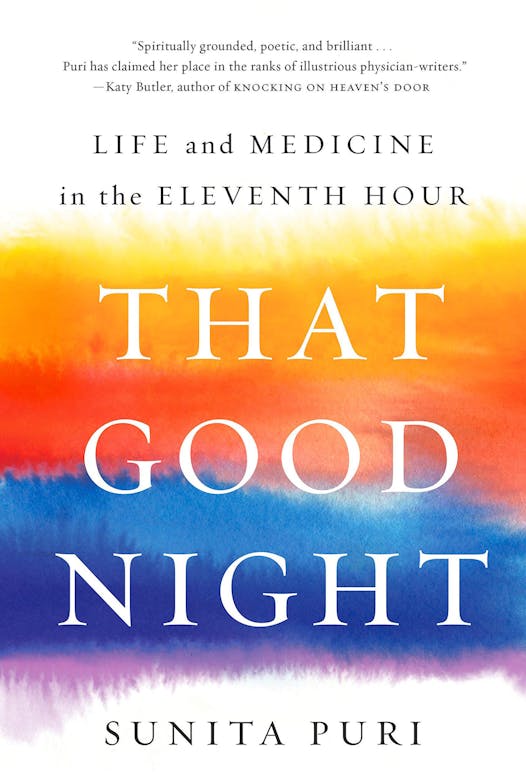That Good Night: Life and Medicine in the Eleventh Hour
By Sunita Puri. (Penguin, 320 pages, $16.99, paperback.)
Over the past few decades, Americans have begun to understand that doctors' work doesn't always mean curing or preventing disease. Palliative and hospice care, which only became distinct medical subspecialties in 2006, center on providing comfort and improving the quality of life as patients near its end. This massive change in perspective proved a hurdle for Dr. Sunita Puri, as well. As she grew up in California, she wanted to emulate her anesthesiologist mother, always envisioning herself on the fighting-disease side of the equation. But late in Puri's medical school training, an elective rotation with the palliative care team changed her direction. The experience left her "feeling the closest I had felt to the doctor I always wanted to be."
Her discomfort is palpable as she describes her first interactions with patients who have terminal diagnoses. Over time, she recognizes her patients' relief and gratitude when they are able to take some control of their treatment and care. As Puri's confidence builds, so does her comfort with ambiguity. While she had trained to seek diagnoses, treatments and defined outcomes, she now waded through the murky waters of defining what is most valuable to those she treats.
The most powerful tools in her practice of palliative care are not scalpels or syringes: They are words. "I had to be Ernest Hemingway," she writes. "And this sometimes felt brutal, the exact opposite of compassionate. But the honesty was the compassion." In a book full of both sadness and enlightenment, Puri's compassion and honesty shine.

The 5 best things our food writers ate this week

A Minnesota field guide to snow shovels: Which one's best?

Summer Camp Guide: Find your best ones here

Lowertown St. Paul losing another restaurant as Dark Horse announces closing


